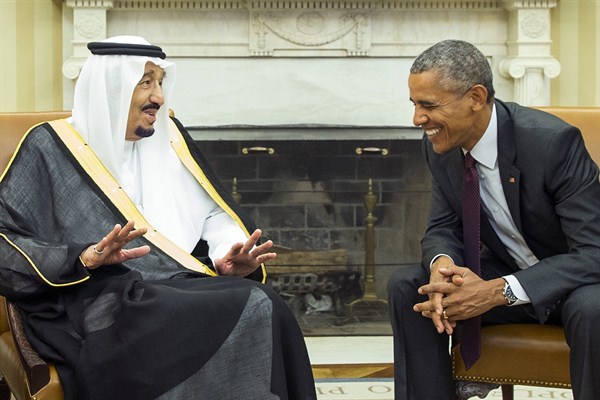For decades, American security strategy in the Persian Gulf has been built on a partnership with Saudi Arabia. But despite this relationship’s importance, it was always peculiar and tense, pairing a democratic global power with a secular approach to foreign policy on one hand with a stridently conservative authoritarian regime on the other. Given the Saudi regime’s internal repression and international support for a brand of Islam that sometimes provides an ideological gateway to violent extremism, few Americans felt any affinity for the desert kingdom. The relationship was seen as unpleasant but necessary to stabilize global oil prices and prevent a hostile power from taking over the Persian Gulf region.
Now, though, the partnership is unraveling. The first big blow was the Obama administration’s unwillingness to support Egyptian dictator Hosni Mubarak against a popular uprising in 2011, leaving the Saudi regime increasingly worried about its own internal dissent. From there, things went downhill fast. In the Syrian civil war, the Saudis were angered by what they considered the Obama administration’s inadequate efforts to seek Syrian President Bashar Al-Assad’s removal and its reluctance to arm the Sunni resistance movements fighting him. Then when the precarious government of Yemen collapsed and Houthi militias seized the capital, Riyadh broke completely with Washington, organizing and leading a destructive military campaign against the rebels on its own.
Back in the United States, the political right blamed President Barack Obama for the deterioration in ties. Following international outrage over the Saudi execution of 47 people—including a prominent Shiite dissident cleric—last weekend, Republican presidential candidate Carly Fiorina said, “Saudi Arabia is our ally, despite the fact that they don’t always behave in a way that we condone.” Ben Carson, another GOP candidate, stated, “The Saudis have been one of our strongest allies in the Middle East, and I think it’s unfortunate that we put them in the position we have.”

